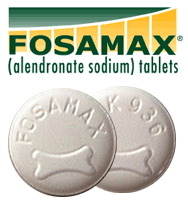 Two contrasting Accutane lawsuit updates in the news today:
Two contrasting Accutane lawsuit updates in the news today:
First, some background. Accutane is used to treat severe acne and has been associated with a host of problems: birth defects, inflammatory bowel disease, injuries to the liver, kidneys, nervous system, and pancreas, dermatological reactions, and even suicide. Roche stopped selling it last year after a 27-year run, citing competition from generics and the 5,000 pending Accutane lawsuits.
Plaintiff’s Verdict: $25.16 Million
In May 2007, Andrew McCarrell emerged victorious in a New Jersey Superior Court Accutane lawsuit against Roche Holding AG. Mr. McCarrell developed inflammatory bowel disease caused by Accutane. (View the full original trial on video, purchase required). That victory was short-lived, as the verdict was appealed and overturned because the trial judge should have allowed the defendants to present statistical evidence—that there were five million drug users.




 As you remember, Fosamax, Merck’s osteoporosis drug, is the subject of much litigation. The question presented is whether the drug causes
As you remember, Fosamax, Merck’s osteoporosis drug, is the subject of much litigation. The question presented is whether the drug causes 